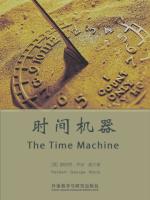时间机器读后感
任伟航
Upon completing "The Time Machine," I find myself deeply
immersed in the visionary world crafted by H.G. Wells, a world that
challenges our perceptions of time and society. This novel, published in
1895, stands as a testament to the power of science fiction to explore
profound themes through imaginative storytelling. Wells' innovation
lies not only in his concept of a machine capable of traversing time but
also in the philosophical questions it raises. The Time Traveller's
journey into the future becomes a metaphorical voyage through human
evolution, allowing us to reflect on the potential outcomes of societal
structures and class divisions. The depiction of the Eloi and the
Morlocks is particularly striking. The Eloi, living a life of apparent
ease and simplicity, represent the upper classes who have become
complacent and lost their will to strive. In contrast, the Morlocks,
dwelling underground and working to sustain the Eloi, symbolize the
exploited working class. This stark dichotomy serves as a critical
commentary on the potential consequences of unchecked social
stratification and industrialization. Moreover, the novel grapples with
the nature of progress and the cyclical patterns of history. The future
world that Wells envisions, despite its technological advancements, is
far from utopian. It is a reminder that progress is not always linear
and that every era must confront its own set of challenges. In its
exploration of time travel, "The Time Machine" also invites
readers to consider the relativity of time. The Time Traveller's
experiences highlight the subjective nature of time, which can seem to
slow down or speed up depending on one's perspective. This adds a layer
of complexity to the narrative, making it not just a story about a
physical journey but also a contemplation of the human experience.
Ultimately, "The Time Machine" is more than just a tale of
adventure; it is a thought-provoking work that uses the framework of
science fiction to question the very fabric of society and the direction
in which we might be heading. Wells' timeless narrative continues to
resonate with readers today, challenging us to think critically about
our present actions and their implications for the future.




 京公网安备 11010802032529号
京公网安备 11010802032529号